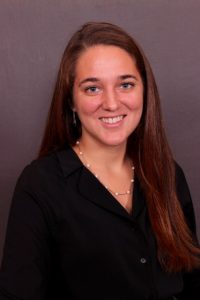GAAP2 is led by the International Food Policy Research Institute (IFPRI). Members of the core team work with each project partner to assist in the development of a mixed methods evaluation of project impacts on men and women's assets.
Principal Investigators:
 Agnes Quisumbing, co-PI of GAAP2, is an economist with over 25 years of experience. She led IFPRI’s gender and intrahousehold research program and has long-standing interests in gender, property rights, and economic mobility. She will lead the IFPRI team, ensure fiscal and managerial oversight with relation to the use of the grant funds, liaise with the partner project leads, leads from the capacity-building institutions, key program officers at the BMGF, ensure highest scientific quality of the research protocol and take the lead in the design and quantitative analysis of the surveys used to design pro-WEAI. She was one of the co-developers of the WEAI.
Agnes Quisumbing, co-PI of GAAP2, is an economist with over 25 years of experience. She led IFPRI’s gender and intrahousehold research program and has long-standing interests in gender, property rights, and economic mobility. She will lead the IFPRI team, ensure fiscal and managerial oversight with relation to the use of the grant funds, liaise with the partner project leads, leads from the capacity-building institutions, key program officers at the BMGF, ensure highest scientific quality of the research protocol and take the lead in the design and quantitative analysis of the surveys used to design pro-WEAI. She was one of the co-developers of the WEAI.
 Ruth Meinzen-Dick, co-PI, a sociologist by training with over 25 years’ experience, was also involved in developing the original WEAI. She provides intellectual leadership on linking the qualitative and quantitative research to develop pro-WEAI, particularly on the role of social capital and institutions. Given her experience with leading multi-center research programs such as the CGIAR program on Collective Action and Property Rights (CAPRi), she is particularly involved in the institutional strengthening program for CGIAR and other researchers, and outreach to other organizations to increase application of pro-WEAI.
Ruth Meinzen-Dick, co-PI, a sociologist by training with over 25 years’ experience, was also involved in developing the original WEAI. She provides intellectual leadership on linking the qualitative and quantitative research to develop pro-WEAI, particularly on the role of social capital and institutions. Given her experience with leading multi-center research programs such as the CGIAR program on Collective Action and Property Rights (CAPRi), she is particularly involved in the institutional strengthening program for CGIAR and other researchers, and outreach to other organizations to increase application of pro-WEAI.

Hazel Malapit, co-PI, is a Research Coordinator at the Poverty, Gender, and Inclusion Division at the International Food Policy Research Institute (IFPRI). She coordinates research, training and technical assistance on the implementation of the Women’s Empowerment in Agriculture Index (WEAI), manages and coordinates the integration of gender into the research of the CGIAR Research Program on Agriculture for Nutrition and Health (A4NH), and conducts research on gender, women’s empowerment, agriculture, health and nutrition issues. Before joining IFPRI, she held the Herman Postdoctoral Fellowship in Gender and Economics at the University of Michigan, Ann Arbor in 2009-2010, and conducted research on gender, labor market and data issues at the World Bank’s Gender and Development unit (PRMGE). She received her MA in Economics from the University of the Philippines, and her PhD in Economics from American University.
Other members of the GAAP2 team:
IFPRI staff

Rasmi Avula, is a nutritionist based in IFPRI’s South Asia office in India. In GAAP2, she will contribute via her expertise in designing and executing process evaluation and in examining gender-related issues surrounding the uptake of nutrition–related interventions.

Jessica Heckert, a social demographer, specializes in the integration of quantitative and qualitative methods, particularly the use of qualitative methods in the development of questions for large surveys and the interpretation of quantitative findings. She has worked with the Demographic and Health Surveys team at USAID to examine the validity and usefulness of established women’s empowerment survey items and proposing future survey items. At IFPRI, she has worked on the measurement, analysis, and interpretation of findings related to women’s empowerment in the context of evaluating enhanced homestead food production.
 Neha Kumar is an economist by training and has an accumulated expertise that spans the diverse sectors of agriculture, social protection, and gender and nutrition-focused programs. She has worked on impact evaluations in Bangladesh, Ethiopia, India, and Uganda, focusing on impacts on assets, nutritional outcomes, and gender. In GAAP2, Dr. Kumar will provide intellectual leadership via her cross-sectoral topical expertise and her extensive experience in econometric techniques of impact evaluation.
Neha Kumar is an economist by training and has an accumulated expertise that spans the diverse sectors of agriculture, social protection, and gender and nutrition-focused programs. She has worked on impact evaluations in Bangladesh, Ethiopia, India, and Uganda, focusing on impacts on assets, nutritional outcomes, and gender. In GAAP2, Dr. Kumar will provide intellectual leadership via her cross-sectoral topical expertise and her extensive experience in econometric techniques of impact evaluation.

Emily Camille Myers is a Research Analyst at IFPRI, where she works on qualitative research for the Gender, Agriculture, and Assets Project (GAAP).

Shalini Roy is an economist with extensive experience conducting impact evaluations of interventions across social protection, agriculture, and nutrition. She has particular expertise in assessing the effects of these programs on gender dynamics and early childhood outcomes spanning nutrition, health, and child development. Her research covers diverse contexts in South Asia, Sub-Saharan Africa, and Latin America. She was on the core team for the first phase of GAAP where she co-led the design and empirical analysis for two of the case studies. She has experience working closely with implementation partners to guide intervention design and build their capacity to better understand as well as independently conduct research.

Greg Seymour, an economist, has extensive experience developing and testing the validity of various indicators of women’s empowerment. His current research focuses on how constraints associated with gender affect women’s time allocation and the adoption of improved technologies and management practices. He assisted in the development of the WEAI and is a former WEAI Doctoral Dissertation Fellow. On this project, he will contribute technical expertise in calculating the WEAI.
Partners
 Cheryl Doss, is a development economist whose research focuses on issues related to assets, agriculture, and gender, with a regional focus on sub-Saharan Africa. She leads the strategic gender research for the CGIAR Research Program on Policies, Institutions and Markets (PIM). In GAAP2, she will provide methodological expertise in the measurement of gender-disaggregated indicators related to asset ownership and empowerment.
Cheryl Doss, is a development economist whose research focuses on issues related to assets, agriculture, and gender, with a regional focus on sub-Saharan Africa. She leads the strategic gender research for the CGIAR Research Program on Policies, Institutions and Markets (PIM). In GAAP2, she will provide methodological expertise in the measurement of gender-disaggregated indicators related to asset ownership and empowerment.
Deborah Rubin is co-director of Cultural Practice LLC. She has over 25 years of experience on strategic planning and evaluation, and agricultural policy research, economic growth, business development, and poverty reduction.